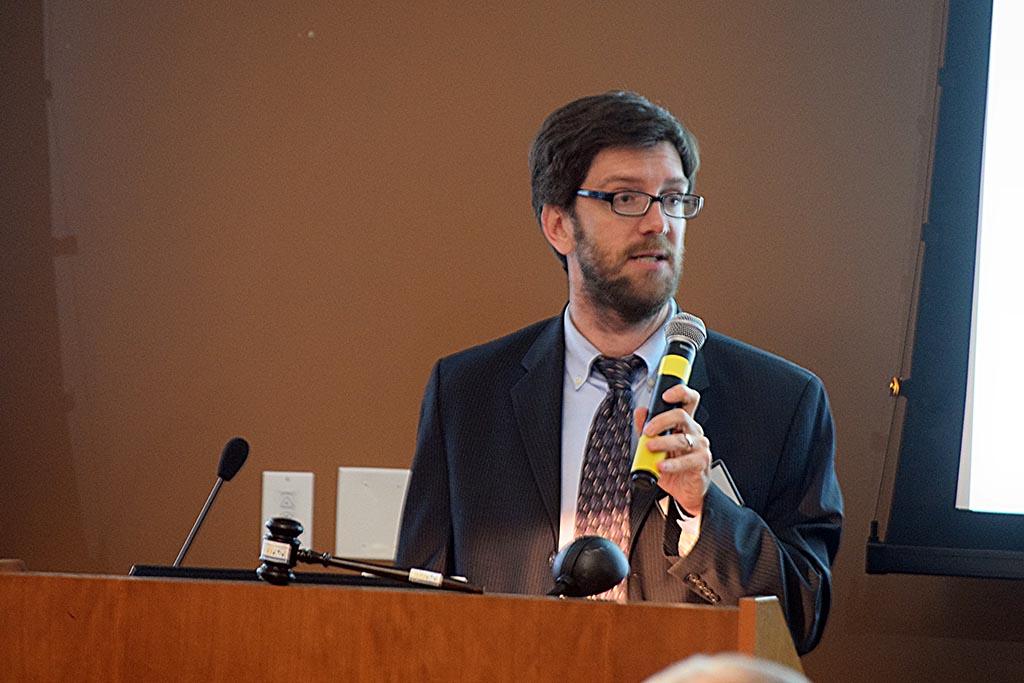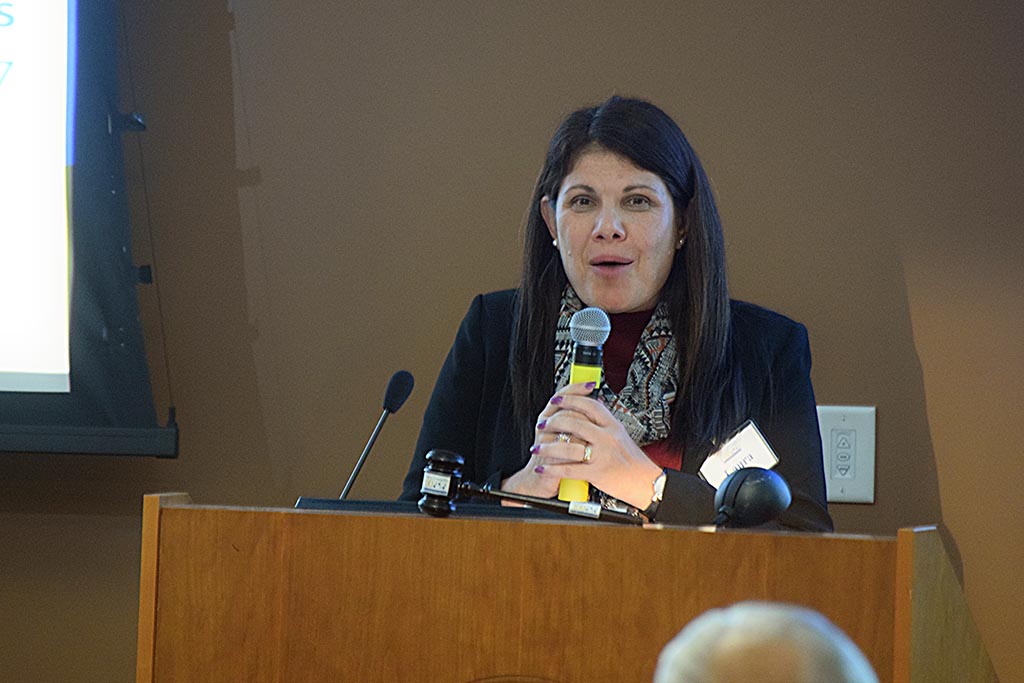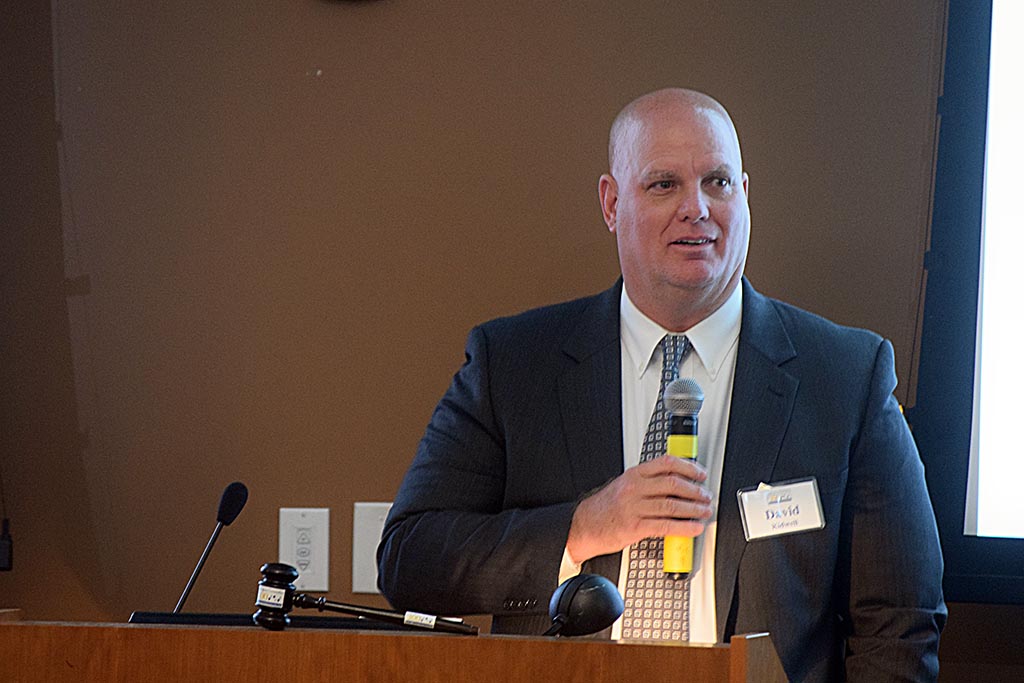The Arlington County Sheriff’s Office should rethink its relationship with U.S. Immigration and Customs Enforcement, according to a leader at a criminal justice nonprofit.
Simon Sandoval-Moshenberg, legal director at the Falls Church-based Legal Aid Justice Center — which provides legal representation for low-income Virginians — said with President Donald Trump’s harder line on illegal immigration, Arlington and other jurisdictions should look again at how they work with ICE.
Under former President Barack Obama, he said, ICE was focused primarily on deporting illegal immigrants who are gang members and criminals. But now, according to Sandoval-Moshenberg, their orders appears to be broader as they seek to deport non-criminals as well.
Fellow panelist, Deputy Sheriff David Kidwell, said that Arlington is legally required to provide information on people under arrest electronically to Virginia State Police. VSP then shares that data with the FBI and ICE, among other law enforcement agencies.
If a person in jail is wanted by ICE for deportation and the Sheriff’s Office receives a request to hold onto them, it notifies ICE 48 hours before the person is released to come and collect them. But Sandoval-Moshenberg said that should change.
“I think there are a lot of assumptions and agreements under the old administration that need to be revisited given the new administration’s policies,” he said.
The pair were on a panel Wednesday night to discuss the impact of the changes in immigration law and enforcement as part of the Arlington Committee of 100’s monthly program at Marymount University.
Kidwell echoed County Manager Mark Schwartz’s statement earlier this year that Arlington cannot protect anyone from federal immigration enforcement. Instead, he said, Sheriff Beth Arthur has made the decision to “uphold the law.”
“She has decided once that request has been made [by ICE], to honor that request,” Kidwell said.
A third panelist, Laura Newton, director of Student Services at Arlington Public Schools, said APS will not require families or students to reveal their immigration status when they register. She added that families should not be afraid of sending their children to school.
“We need to make sure people know we are an open and welcoming county, and we will not stop anyone registering for school because of their legal status,” Newton said. She added that policy has not changed over the past several years, and APS has not received any complaints about it.
Still uncertain is the future of the approximately 800,000 people that will be affected when President Trump’s rescinding of the Deferred Action for Childhood Arrivals program starts to take effect in March. Trump is reported to be working on a deal with congressional Democrats to preserve DACA protections via legislation.
The decision, which affects people brought into the country illegally as children who were granted work permits and protection from deportation, was criticized by local members of Congress as well as the County Board.
Sandoval-Moshenberg estimated there are around 17,000 undocumented immigrants in Arlington. He said the dearth of affordable housing has meant the immigrant population has been slowly squeezed out. In 2000, 30 percent of Arlington residents were foreign-born, but in 2010, that figure went down to 20 percent.
“As the laws and policies have become more and more welcoming to immigrants and more and more friendly to immigrants, less and less are living here as fewer and fewer can afford to live here,” Sandoval-Moshenberg said. He said that ending DACA could mean more people go back into the shadows.
Both Kidwell and Newton said their agencies will not change their stances on illegal immigrants. Kidwell said sheriff’s deputies and police officers will not ask anyone under arrest about their immigration status, while Newton emphasized that APS mission to educate anyone and everyone who lives in Arlington.
“It’s not our place to judge the reasons why you are here,” she said. “Our job is to educate you.”
The Committee of 100 will discuss the impact of immigration policy and enforcement on private organizations and civic groups at its November meeting in the second of its two-part series on the issue. In October the group will hold a forum with local candidates for public office.





